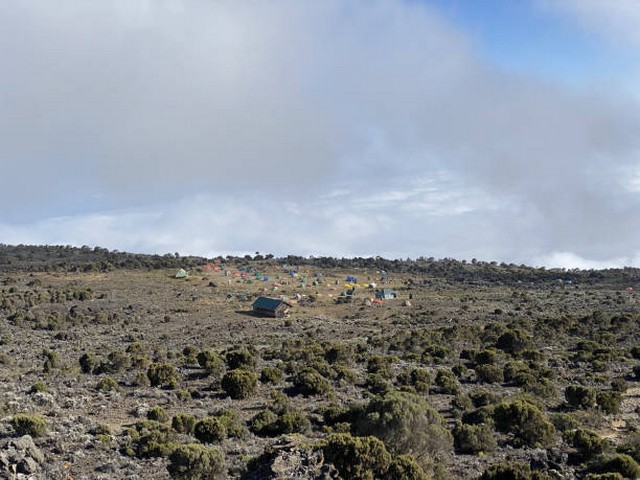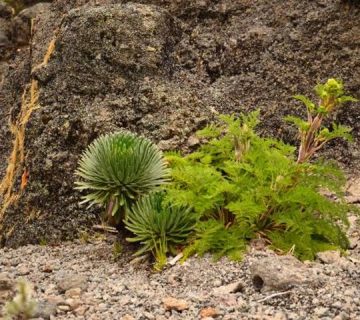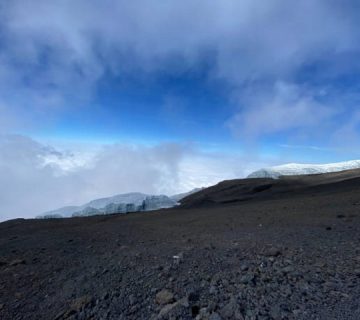Climbing Responsibly: Why Choosing the Right Partner Matters on Mount Kilimanjaro
Discover the Ethical Path with Kilimanjaro Centre for Trekking and Ecotourism (KCTE)
Ascending the majestic slopes of Mount Kilimanjaro is not just an adventure; it’s a pilgrimage into the heart of nature’s splendor. But as the snow-capped summit beckons, the footprints we leave behind matter immensely. At Kilimanjaro Centre for Trekking and Ecotourism (KCTE), our mantra is to ensure that every step taken is respectful to the mountain and beneficial to the local communities. In this blog, we explore why selecting responsible Kilimanjaro trekking companies like KCTE is crucial for a sustainable and fulfilling climbing experience.
Embracing Eco-Friendly Trekking Practices
Sustainability at the Summit
Mount Kilimanjaro, Africa’s tallest peak, is more than just a natural wonder; it’s a vital ecosystem, a source of life and culture. Responsible trekking companies understand this. At KCTE, we embrace eco-friendly practices that preserve the mountain’s beauty and integrity. From using biodegradable products to ensuring all waste is properly managed and disposed of, our commitment is to minimize environmental impact.
The Power of Leave No Trace
"Leave No Trace" isn’t just a policy; it’s a principle that guides every trek. We ensure that the paths we tread are as pristine on our departure as on our arrival. This means strict control over litter, camping in designated areas, and using established trails to reduce the disruption to wildlife.
Supporting Local Communities
Beyond Tourism: A Lifeline for Locals
For many responsible Kilimanjaro trekking companies, support for local communities is a cornerstone. At KCTE, we go beyond mere economic support; we integrate community upliftment into the core of our operations. By employing local guides, porters, and staff, we not only provide vital job opportunities but also ensure that the benefits of tourism are directly felt by the local populace.
Fair Wages and Good Working Conditions
We pride ourselves on adhering to ethical practices, including paying fair wages and ensuring excellent working conditions for our teams. This fosters a positive and respectful relationship, which in turn enhances the experience for our climbers. When guides and porters are treated well, their passion and dedication shine, making your journey up Kilimanjaro that much more enriching and enjoyable.
Tailored Experiences for Every Trekker
Your Dream Climb, Responsibly Delivered
Every climber has a unique vision of their Kilimanjaro journey. At KCTE, we specialize in crafting tailor-made experiences that cater to individual preferences and fitness levels, all while maintaining our ethical standards. Whether you’re a seasoned mountaineer or a first-time trekker, we design the journey to match your pace and aspirations.
Safety as a Priority
Safety transcends everything else. Responsible Kilimanjaro trekking companies invest heavily in safety training and equipment. At KCTE, our guides are Wilderness First Responder (WFR) certified, and we conduct regular safety drills and equipment checks to ensure that every aspect of your trek is covered, letting you focus on the beauty around you.
A Commitment to Conservation
Participating in Preservation
Climbing Kilimanjaro is an opportunity to participate in conservation efforts. We encourage our climbers to engage in dialogues about conservation and support initiatives aimed at preserving Kilimanjaro’s ecosystems. A portion of our proceeds goes directly towards conservation projects, making every climber a partner in our environmental stewardship.
Educating for the Future
Education is pivotal in promoting sustainable tourism. KCTE offers educational programs and materials that highlight the importance of conservation, aiming to inspire a new generation of responsible travelers. By choosing KCTE, you contribute to a culture of mindful trekking and ecological awareness.
Why Choose KCTE for Your Kilimanjaro Adventure?
Expertise and Passion
With years of experience and a deep love for Kilimanjaro, our team at KCTE is uniquely equipped to deliver an unmatched climbing experience. Our expert guides not only navigate the mountain’s trails but also share insights into the local flora, fauna, and cultural heritage, enriching your journey at every step.
A Bond with Kilimanjaro
Choosing KCTE means opting for a trekking partner who views Kilimanjaro not just as a destination but as a cherished friend. Our respect for the mountain is evident in every decision we make, from the routes we select to the practices we adopt.
Conclusion: Join Us in Treading Lightly on Kilimanjaro
Embarking on a Kilimanjaro climb with KCTE is more than just achieving a personal milestone; it’s a commitment to responsible and sustainable trekking. As you stand atop Africa, the satisfaction will not only come from conquering the heights but also from knowing that you have done so responsibly, preserving the magic of Kilimanjaro for future adventurers.
Frequently Asked Questions (FAQ)
What makes KCTE different from other trekking companies?
KCTE stands out due to our unwavering commitment to sustainability, community support, safety, and personalized experiences. Our ethical practices ensure that both the environment and local communities benefit from your trek.
How does KCTE contribute to local communities?
We employ local staff, provide fair wages, and involve communities in decision-making processes. We also channel a portion of our profits back into local projects to ensure ongoing development and support.
Are there different routes I can take with KCTE?
Absolutely! We offer a variety of routes tailored to different fitness levels and desires, from the popular Marangu and Machame routes to the more remote and scenic Lemosho and Northern Circuit paths.
How do I book my climb with KCTE?
Booking is simple! Visit our website, choose your preferred trekking package, and fill out the booking form. Alternatively, contact us directly, and we’ll assist you in planning your perfect Kilimanjaro adventure.
Embrace the journey of a lifetime while championing the principles of responsible trekking. Choose Kilimanjaro Centre for Trekking and Ecotourism (KCTE) for an unforgettable climb that respects both the natural beauty of Kilimanjaro and the vibrant culture of its people. Let’s make your dream climb a reality, and together, let’s tread lightly on the roof of Africa.




